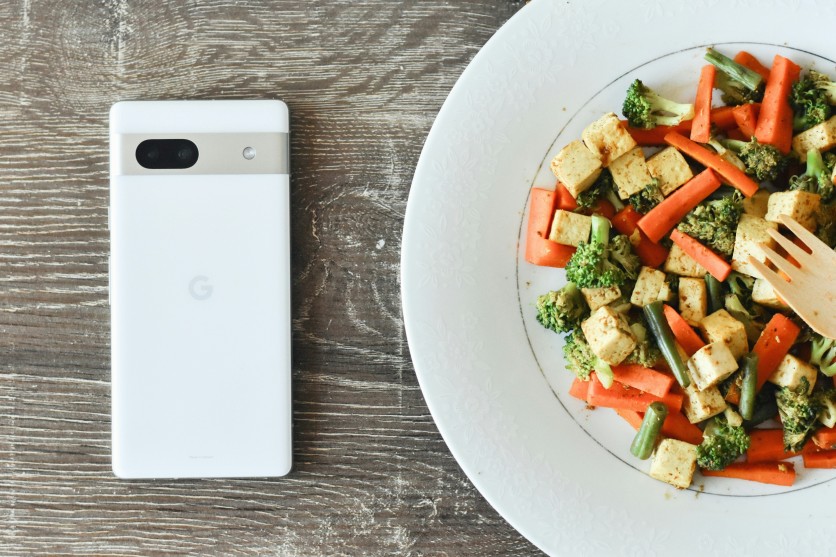Technology is reshaping how we think about food and nutrition. From tracking calories to analyzing nutrient intake in real time, nutrition tech devices are transforming eating habits and helping people make smarter, data-driven choices. What was once a matter of guesswork is now guided by apps, wearables, and artificial intelligence designed to monitor and optimize health.
These smart devices for eating habits represent more than just a trend—it's a nutrition data revolution. By combining data analytics with behavioral science, these innovations personalize nutrition, promote healthier lifestyles, and give individuals deeper insight into their unique dietary needs. As technology continues to evolve, our relationship with food is becoming more informed, intentional, and sustainable.
What Are Nutrition Tech Devices?
Nutrition tech devices are tools designed to help individuals monitor, manage, and improve their diet through real-time feedback and data analysis. These devices use sensors, AI algorithms, and mobile platforms to measure key metrics, including calorie intake, hydration levels, and nutrient absorption. Their purpose is to bridge the gap between what we eat and how our body responds.
Common examples include wearable sensors that analyze body composition, smart scales that track weight and metabolic data, and AI-powered nutrition apps that provide personalized meal plans. Devices like Lumen, which measures metabolism through breath analysis, and MyFitnessPal, which syncs data from smartwatches, illustrate how technology integrates into everyday health management. Together, these innovations fuel the nutrition data revolution, where insights gathered from millions of users are helping researchers refine recommendations for healthier living.
How Does Smart Tech for Eating Habits Work?
At the heart of the smart tech for eating habits is data collection and analysis. These tools gather detailed information on food intake, physical activity, and biological responses. Artificial intelligence (AI) and machine learning interpret this data, learning individual habits over time and offering actionable insights—for instance, suggesting balanced meals based on energy levels or flagging nutrient deficiencies.
Mobile health platforms such as Fitbit and Apple Health sync with nutrition apps to create an integrated ecosystem of information. The feedback loop helps users stay accountable while encouraging behavior change through gentle nudges and progress tracking. Beyond personal use, this data is valuable for nutrition scientists and healthcare providers who use anonymized datasets to understand broader dietary patterns. In this way, smart nutrition technologies not only help individuals but also contribute to global nutritional research and public health efforts.
What Benefits Does the Nutrition Data Revolution Offer?
The nutrition data revolution has ushered in a new era of personalized wellness. Instead of generic diets, people now have access to nutrition plans tailored to their genetics, metabolism, and lifestyle. This personalization improves health outcomes and reduces the risk of chronic diseases such as diabetes and obesity by promoting more precise, sustainable eating habits.
Technology also makes nutrition more accessible. Smart devices simplify complex data, turning nutritional science into easy-to-follow insights that fit into daily routines. For healthcare professionals, real-time nutrition data enables early detection of unhealthy patterns and supports preventive care. Despite challenges like data privacy and the need for more inclusive algorithms, the potential is enormous. As technology advances, nutrition tech will continue to evolve—combining wearables, AI, and even DNA-based diet recommendations—to shape a healthier future for all.
The Future of Nutrition Tech
As nutrition tech devices continue to advance, they're moving beyond simple tracking toward predictive nutrition—where technology not only monitors habits but anticipates needs. Future devices may analyze biomarkers from saliva or sweat to detect nutrient deficiencies before symptoms appear. AI could integrate environmental and emotional data, recognizing how stress or weather patterns affect eating choices and energy levels.
Moreover, the convergence of nutrition tech with genomics and microbiome science could further revolutionize personalized diets. Scientists envision adaptive meal plans that adjust in real time based on hormonal changes, sleep quality, or gut bacteria composition. In addition, sustainability-focused apps are emerging to help users align their nutrition goals with eco-friendly food choices, thereby reducing waste and carbon emissions. These advancements point toward a future where nutrition technology doesn't just respond to health—it actively shapes it.
Conclusion
Nutrition tech and smart eating habits tech devices are changing how we understand and manage nutrition. By merging science, technology, and personal data, these tools empower people to make informed food choices that support long-term health and well-being. The nutrition data revolution marks a turning point in modern wellness—one where food decisions are guided not by fad diets but by accurate insights and real-time feedback.
As the field continues to grow, it's clear that nutrition technology is not just enhancing what we eat—it's redefining how we think about food, health, and data in everyday life. The more we embrace these innovations, the closer we come to achieving a future where smart nutrition supports healthier societies worldwide.
Frequently Asked Questions
1. What are some examples of nutrition tech devices?
Examples include smart scales, AI-based meal planning apps, wearable hydration trackers, and metabolism-measuring devices like Lumen.
2. How does smart technology improve eating habits?
It provides real-time feedback, helps track progress, and uses AI to personalize nutrition recommendations, encouraging consistent and healthier eating patterns.
3. What is the nutrition data revolution?
It refers to the growing use of digital tools and big data to understand, analyze, and improve human nutrition at the individual and global levels.
4. Can wearable devices track my diet accurately?
While not perfect, modern devices offer increasingly precise estimates through advanced sensors and AI, especially when paired with user input and professional guidance.
ⓒ 2026 TECHTIMES.com All rights reserved. Do not reproduce without permission.





